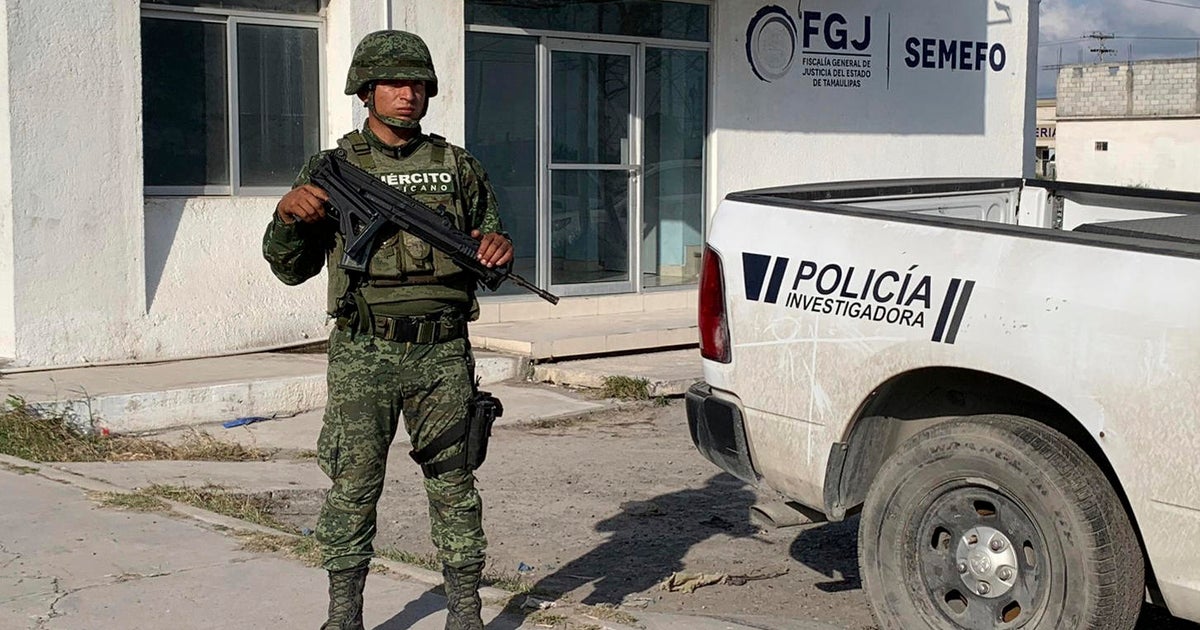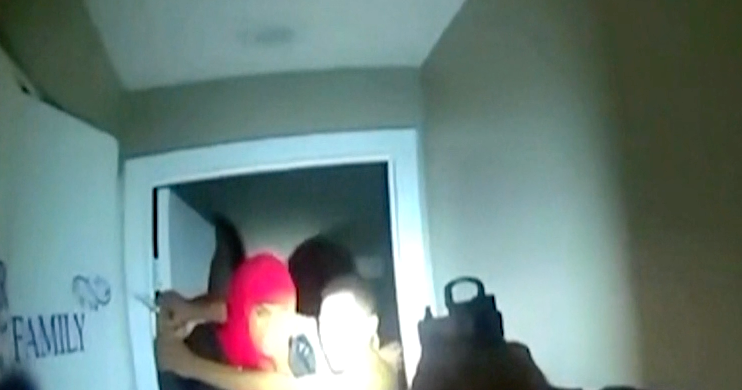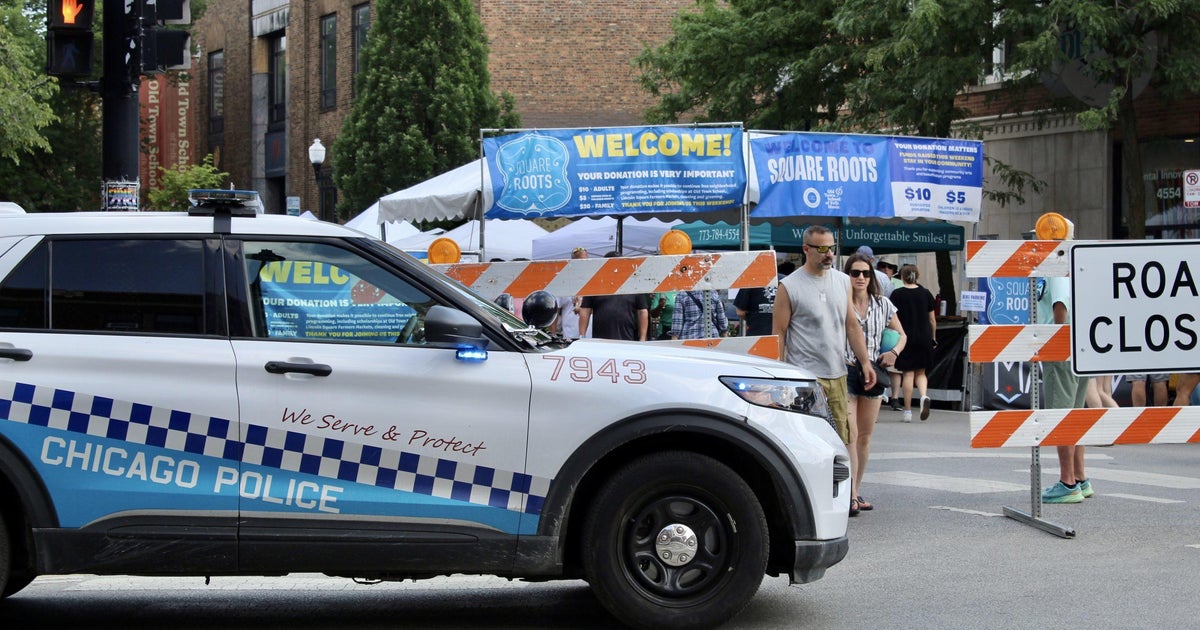Minneapolis Police Chief Medaria Arradondo on George Floyd's killing, policies during protests and reform for his department
On Memorial Day, a white Minneapolis police officer knelt on a black man's neck until he was unresponsive. The killing of George Floyd sparked the protests we've seen around the country.
With Minneapolis on edge and under scrutiny, the pressure is on the city's police chief, Medaria Arradondo, a 30-year veteran and the first black man to head the mostly white police department. He fired the four officers involved within 24 hours. We spoke with the chief remotely, discussing the events of May 25, the video that ignited it all and the police response, which started with a lie.
Lesley Stahl: So as I understand it, there was something released to the press, that George Floyd had resisted arrest and that he had-- I'm gonna read this, died "after a medical incident during a police interaction."
Chief Medaria Arradondo: That was preliminary information that was absolutely an official police statement however, um, that was not accurate.
Lesley Stahl: So, it makes you wonder, doesn't it, that if there hadn't been that video that someone took on their phone, that would've been the end of it.
Chief Medaria Arradondo: And our communities have said that for-- for many years. Um, when these incidents occur, if they're not captured on video, are their voices gonna be taken as-- as-- as truthful? And, and that cuts to the very core of why we have, uh, distrust in our communities, quite frankly.
It was a 17-year-old who recorded this now infamous video showing that truth. George Floyd wasn't resisting arrest. He died after a police officer, Derek Chauvin, pressed his knee into Floyd's neck for nearly eight minutes.
Floyd said I can't breathe more than 10 times.
Chief Medaria Arradondo: When I saw that video, it was probably in my 30-plus years, the most heart-wrenching, emotional, image that I had ever seen.
Lesley Stahl: Officer Chauvin's demeanor, he was so relaxed. He was just-- it seemed, so confident that he was gonna get away with this.
Chief Medaria Arradondo: Well, whatever he might have expected, he did not receive that from me.
Lesley Stahl: I am going to read you something about your own policies related to neck restraints. And it says, that the officers can use, "neck restraints, non-deadly force, defined as compressing one or both sides of a person's neck with an arm or a leg, without applying direct pressure to the trachea or airways in the front of the neck."
Chief Medaria Arradondo: That policy does not state that you apply your full entire body weight with your knee on an individual who's not resisting, cutting off his air. That would not be anything I'd condone or was anything intended in-- in-- in that particular policy that you read there.
Lesley Stahl: And you just, I believe, banned chokeholds.
Chief Medaria Arradondo: Absolutely.
Lesley Stahl: But you're gonna keep the policy of allowing neck restraints?
Chief Medaria Arradondo: No. Those are banned, absolutely.
Lesley Stahl: The lawyer for the other officers is saying they were rookies and they were just following the instructions of the senior officer.
Chief Medaria Arradondo: I don't craft policy or make policy based on years of service. I expect, and our community expects, your humanity and your moral compass to rise above. And so,if you fail to intervene, either verbally or physically, to me, you're complicit.
Even while protests broke out across the country over George Floyd's death, another black man was shot by a white officer in Atlanta, and 24 hours later, the Atlanta police chief resigned. We asked Chief Arradondo.
Lesley Stahl: Did you ever consider stepping down?
Chief Medaria Arradondo: No. I-- I did not consider stepping down. When George Floyd's death occurred, my minutes and my hours and my days were consumed with-- really trying to-- to keep this city, um, held together.
The killing of George Floyd was not the first incident in the Twin Cities that triggered rage in the black community. In 2015, another white officer killed 24-year-old Jamar Clark, setting off 18 days of protests. The officer and his partner were never charged.
One year later, Philando Castile was killed during a traffic stop over a broken taillight with his girlfriend and daughter in the car. The officer was charged with manslaughter, but was acquitted. In 2018, Thurman Blevins, 31, was killed by two white police officers who opened fire as he ran away with a gun.
No criminal charges were brought. But, in a striking comparison, in 2017, Justine Damond, a white woman who had called 911, was killed by a black officer, Mohamed Noor. He was convicted of third degree murder and manslaughter and is serving a 12-and-a-half year prison sentence.
By last month's killing of George Floyd, Chief Arradondo said the Minneapolis black community had had enough.
Chief Medaria Arradondo: Within a few hours we had both protests becoming more violent, we had large groups of individuals who had overrun security around the precinct; we had large scale looting, fires, shots being fired.
Lesley Stahl: You know there's some complaining that the police backed away. They didn't protect property. Stores were going up in flames. People were running in and out of stores unhampered. It all broke down. What happened?
Chief Medaria Arradondo: So, yes, there were absolutely businesses, uh, that we could not respond to. But we had to tend to people that were being assaulted, shots being fired and so preservation of life for me as Chief is going to always be the number one priority.
Lesley Stahl: So that was a policy that night. Let the looting happen?
Chief Medaria Arradondo: As devastating as it is, I did not want us to have a series of funerals because of people being fatally wounded or hurt.
The property damage in Minneapolis is estimated at more than $100 million.
The mainly peaceful protestors are calling for reforms including dismantling or defunding the police department.
Lesley Stahl: I heard somebody say, look, we have to get rid of the Minneapolis Police Department. We just have to get rid of it. It is so broke. It cannot be fixed.
Chief Medaria Arradondo: Each and every day I hear from community members who rely upon us, who are saying that we cannot afford to take away a public safety mechanism when we still have a lawless society. Now, they also say we need good policing. We know it's broken. We need to make changes.
A week after the George Floyd killing, the chief went to the site, which has become kind of a shrine.
Chief Medaria Arradondo: I wanted to pay my respects-- to Mr. Floyd. And it-- so-- just happened that again, that's my neighborhood. I-- I grew up a block away from where he died.
He grew up in this house in the 1970s, one of nine children to parents who instilled in him, he said, a respect for public service.
Lesley Stahl: Chief, were you ever stopped? Were you ever pulled over just because you're black?
Chief Medaria Arradondo: Yeah, yeah. In my experience, that-- that shouldn't be shocking. We are a society, we are a group of beings that have implicit bias. And-- and-- that is-- that-- that occurs.
Lesley Stahl: When did it occur with-- for you?
Chief Medaria Arradondo: I think it was just driving-- you know, through the-- the-- the city streets. And this happened years ago. It occurs. It does occur in this country.
Lesley Stahl: I wanna ask about your own children.
Chief Medaria Arradondo: Yes.
Lesley Stahl: Were you ever worried when they just went out for a walk or went in their car-- w-- that they would be stopped just because of the color of their skin?
Chief Medaria Arradondo: Unfortunately, I've had to have that same talk that many black fathers have to have with their sons, about what to do if you happen to be stopped by the police. And the conversations when I'm having that with my son and other fathers have had that with their sons, um, it's about survival.
It's telling that 13 years ago, Medaria Arradondo and four other black police officers sued the department for racial discrimination. In their complaint, they said that every African American officer received a hate letter signed "KKK" through interoffice mail. The case was settled for $740,000.
Lesley Stahl: You're the chief now. You brought this suit. And we're talking about the same things.
Chief Medaria Arradondo: It is not the same. The fact that I'm sitting before you today as Chief, I think, is indicative that some progress has been made.
Among his reforms are ending low-level marijuana stings and toughening body camera requirements. The Minneapolis' black community makes up 19% of the city's population, but only 11% of the nearly 900-member police force. The vast majority of the white officers don't live in the city, but in the suburbs.
Lesley Stahl: Is there racial animosity within the force itself?
Chief Medaria Arradondo: I'm-- I'm not seeing that right now. But we also have to attack and address the systemic challenges and barriers that exist in that.
The chief says those barriers protect police against charges of misconduct. Officer Derek Chauvin had at least 17 complaints against him, but only received two letters of reprimand. Chief Arradondo says he is stymied by the contract he negotiates with the city police union and has broken off talks. The contract has allowed officers who are fired or disciplined to bring that to arbitration.
Lesley Stahl: I've seen some statistics about this arbitration you're talking about. You fire someone. And eventually it-- it-- that police officer brings it to arbitration. And in nearly half of those cases-- half of those cases, that police officer is reinstated. Half the officers whom you fire, you have to take back and put out on the street.
Chief Medaria Arradondo: That's correct. If we have even one who is allowed to come back that sets us back. That erodes that confidence. That erodes that public trust.
Lesley Stahl: Is the bottom line that you cannot weed out the so-called bad apples, and you cannot fully discipline to the extent you want to, because of the union contract?
Chief Medaria Arradondo: It is problematic, absolutely. Yes. And so I cannot in good faith work with a contract that-- that-- diminishes my authority as chief but also erodes that public trust that our communities need so much right now.
Lesley Stahl: And you have suspended the negotiations.
Chief Medaria Arradondo: I, as chief am-- am stepping away from that. I am taking a deliberate pause.
The union's president, Robert Kroll, was named in Chief Arradondo's own civil rights complaint 13 years ago as someone who made racist statements.
Lesley Stahl: The president of the, uh, police union, Robert Kroll, has defended the officers in this case, and he's called the Black Lives Matter movement a terrorist organization. And I just wonder if his attitudes, his outlook, is having an influence on your police force?
Chief Medaria Arradondo: He absolutely is an influencer. And I've continued to have very serious conversations with him. And he and others are going to have to come to a reckoning that either they are going to be on the right side of history or they're gonna be on the wrong side of history. But-- or they will be left behind. Or, they will be left behind.
Produced by Sarah Koch. Associate producer, Chrissy Jones. Broadcast associates, Maria Rutan and Sheena Samu. Edited by Warren Lustig.







